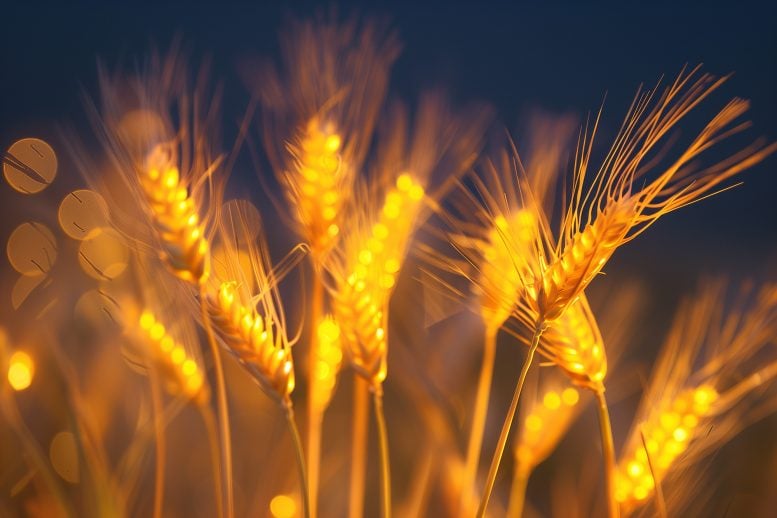Century-Old Biological Experiment Reveals Genetic Secrets of Important Crop


Leveraging the barley composite cross II (CCII), an experiment started in 1929, researchers observed the rapid adaptation of barley in a long-term study, highlighting its survival and evolution under diverse environmental pressures. The findings reveal significant adaptation to climate, particularly in reproductive timing, but also note that this adaptive success did not correlate with the highest yield compared to traditional breeding methods. Credit: SciTechDaily.com
A long-term study since 1929 has revealed significant insights into barley’s evolution, showing its adaptation to different environments and the substantial impact of natural selection. This research underscores the limitations of evolutionary breeding and highlights the need for further exploration to enhance crop yields.
Utilizing one of the world’s oldest biological experiments, which commenced in 1929, researchers have revealed how barley, a major crop, has been influenced by agricultural pressures and its evolving natural environment. These findings highlight the significance of long-term studies in comprehending the dynamics of adaptive evolution.
The survival of cultivated plants after their dispersal across different environments is a classic example of rapid adaptive evolution. For example, barley, an important neolithic crop, spread widely after domestication over 10,000 years ago to become a staple source of nutrition for humans and livestock throughout Europe, Asia, and Northern Africa over just a few thousand generations. Such rapid expansion and cultivation have subjected the plant to strong selective pressures, including artificial selection for desired traits and natural selection by being forced to adapt to diverse new environments.
Genetic Insights from the Barley Composite Cross II Experiment
Although previous research on early barley cultivars has identified some of the plant’s population genetic history and mapped genetic loci that contributed to its spread, the speed and overall dynamics of these processes are difficult to determine without direct observation. Leveraging one of the world’s oldest and most long-term evolutionary experiments, the barley composite cross II (CCII), Jacob Landis and colleagues observed the process of local adaption of barley over nearly a century. CCII is a multigenerational common garden experiment that began in 1929 to adapt a genetically diverse population of 28 barley varieties to the environmental conditions of Davis, California.
Although the experiment began with thousands of genotypes many decades ago, Landis et al. show that natural selection has drastically reduced this diversity, wiping out almost all founding genotypes, leading to the dominance of a single clonal lineage constituting most of the population. This shift occurred rapidly, with the clonal line becoming established by generation 50. According to the findings, this successful lineage is primarily composed of alleles originating from Mediterranean-like environments, like that of Davis. Moreover, the authors show that genes targeted by selection indicate a major role in climate during adaptation, including strong selection on reproductive timing.
“We found considerable evidence that local adaption dominates evolution in this experiment. However, despite early, rapid gains in yield in CCII, the evolutionary breeding approach failed to keep pace with the gains observed from pedigree-based breeding methods,” write Landis et al. “Understanding why the most competitive genotypes produced during local adaptation are not necessarily the highest yielding will be of great interest in the future.”
Reference: “Natural selection drives emergent genetic homogeneity in a century-scale experiment with barley” by Jacob B. Landis, Angelica M. Guercio, Keely E. Brown, Christopher J. Fiscus, Peter L. Morrell and Daniel Koenig, 12 July 2024, Science.
DOI: 10.1126/science.adl0038



